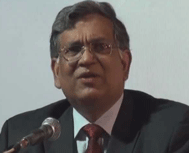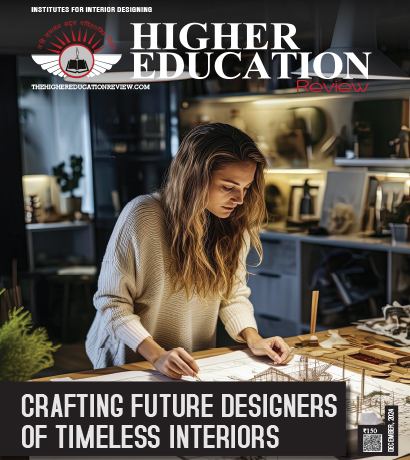The Indian Necessities of Technical Education
 Graduates stepping into the market should have a high level of awareness of the current affairs, which does not mean only cricket, but also the economy, political developments, issues of sustainability, societal concerns and many more. They must have self-awareness of their own strengths, weaknesses, and priorities in life. They must where they wish to be in 20 or 25 years down the road and how the job that they are seeking will help them reach there.
Graduates stepping into the market should have a high level of awareness of the current affairs, which does not mean only cricket, but also the economy, political developments, issues of sustainability, societal concerns and many more. They must have self-awareness of their own strengths, weaknesses, and priorities in life. They must where they wish to be in 20 or 25 years down the road and how the job that they are seeking will help them reach there.
“We must remember that we are not in the business of "training" but our objective is "education", to prepare the student for life”
Strong industry-academia linkages are critical both for the academia and for the industry. It enables our faculty and students to be grounded in reality and get them a sense of the rapid changes that are happening in the world. For the industry, such linkages are critical to tap into the enormous potential of academia. It is important that we do not place too much focus on tailoring the curricula to meet immediate needs of the industry. Instead, we should provide the students generic skills and knowledge, so that they can work in a variety of jobs and adapt them to changing needs of the job market.
Our curricula at the under graduate level need to be more broad-based, rather than sharply focused on needs of specific industry. We must focus on building capacity in our students to “learn to learn”. This is becoming critical when the world is changing at an unprecedented pace and what ever we teach in the class today will very likely become obsolete soon.
There should be an adequate amount offocus on instilling the right attitude, values, and other life skills in the students. We must remember that we are not in the business of “training” but our objective is “education”, to prepare the student for life. To navigate successfully in life, our graduates will benefit far more from right values and attitudes, as compared to specific topics in the curricula.
The factors like how the college/institute is run and how the students are dealt with and treated can significantly enhance the values and attitudes. The curricula should be broad based, and one slogan we use at IITGN frequently is “our students should know some thing about everything and every thing about some thing”. Another commons logan at IITGN is “We treat our students as adults”. That is, we provide them with a lot of freedom, flexibility and responsibility on one side, and hold them accountable for their actions on the other side.
We must appreciate that we are providing ‘education’ first, and ‘technical education’ can only be built on top of a good ‘education’. We must reduce our focus on narrow specialization at a very early stage of college education and must provide a large breadth of education to our under graduates. We also need to appreciate that the new generation of engineers is more likely to work in inter disciplinary are as, as compared to the previous generations.
The choices are huge: corporate jobs, entrepreneurship, research, social work or civil services etc. With in corporate jobs, some will do better in larger companies where things are well defined and everyone’s role is clear, while others may be more suited for smaller companies that have a lot of informality and flexibility.
Distance learning has evolvedenormously over the years with technological innovations. The students must take full advantage of huge learning resources easily available through distance. Not with standing the advantages,one must appreciate that distance learning cannot be a substitute for good teachers and good colleges.
There are clear challenges in front of us with regard to our technical education system. The quality of a large number of our institutions, the quality of faculty in many of them, the curricula, and the general over all ethos of the education system must leave much to be desired. To begin with, we need to allow for a lot of innovation in technicaleducation, delegate more toour universities and colleges, andreduce regulation. If our academicinstitutions do not try innovations,how do we expect such institutionsto graduate engineers that are capableof innovations in their domainsof work?

